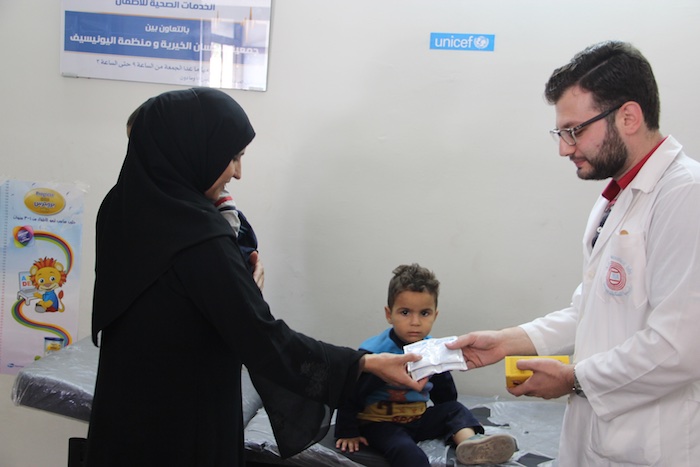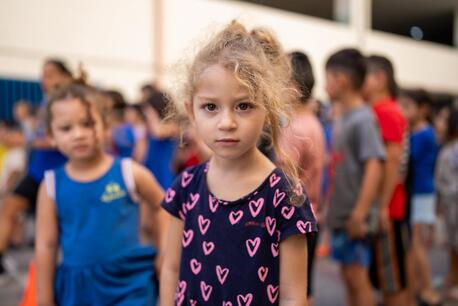
"War in Syria has no checks and balances" - Hospitals Bombed in Aleppo
“This devastating pattern of warfare in Syria seems to have no checks and balances," says Dr. Peter Salama, UNICEF Regional Director for the Middle East and North Africa. In the space of three hours, three hospitals were attacked in east Aleppo, killing babies, children and medical personnel.
Statement by Peter Salama, UNICEF Regional Director for the Middle East and North Africa on attacks on medical facilities in Syria
AMMAN, June 8, 2016
“Everyone must question their humanity when babies have to be taken out of incubators because of attacks on hospitals.
UNICEF confirms that three medical facilities were attacked in Aleppo today in the space of three hours. The al-Bayan and al-Hakim hospitals, within a distance of 300 metres, and the Abdulhadi Fares clinic, all in the eastern part of the city were hit.
The Al-Hakim hospital, a UNICEF supported facility, is one of the few that still provide pediatric services. This is the second attack on the hospital.
This devastating pattern of warfare in Syria seems to have no checks and balances.
The past five years of war have brought daily tragedies to millions of people in Syria. Children, including babies just a few days old, have been injured and lost their lives whilst seeking medical care. Health personnel have been injured and lost their lives on duty.
Hundreds of medical facilities that provide critical life-saving health care for thousands have been damaged or destroyed. In the past two weeks alone, six health facilities were attacked across the country.
Surely this should shake the moral compass of the world. How long will we allow the children of Syria to suffer like this?"
Learn more about UNICEF's efforts to help the children of Syria

UNICEF staff work with children in a primary school in Sanliurfa Province, Turkey, near the Syrian border. Hundreds of thousands of Syrian refugees from a besieged Kurdish town in the north-western Aleppo Governorate, have crossed into Turkey. Approximately 60 percent of them are children. © UNICEF/NYHQ2014-1710/Yurtsever

A doctor dispenses medicine to a woman holding a child at a UNICEF-supported clinic in Aleppo. © UNICEF

Esraa, 4, and her brother Waleed, 3, sit on the ground near a shelter for internally displaced persons. An estimated 3.7 million Syrian children – 1 in 3 of all Syrian children - have been born since the conflict began five years ago. © UNICEF/UN013172/Al-Issa
HOW TO HELP
There are many ways to make a difference
War, famine, poverty, natural disasters — threats to the world's children keep coming. But UNICEF won't stop working to keep children healthy and safe.
UNICEF works in over 190 countries and territories — more places than any other children's organization. UNICEF has the world's largest humanitarian warehouse and, when disaster strikes, can get supplies almost anywhere within 72 hours. Constantly innovating, always advocating for a better world for children, UNICEF works to ensure that every child can grow up healthy, educated, protected and respected.
Would you like to help give all children the opportunity to reach their full potential? There are many ways to get involved.





